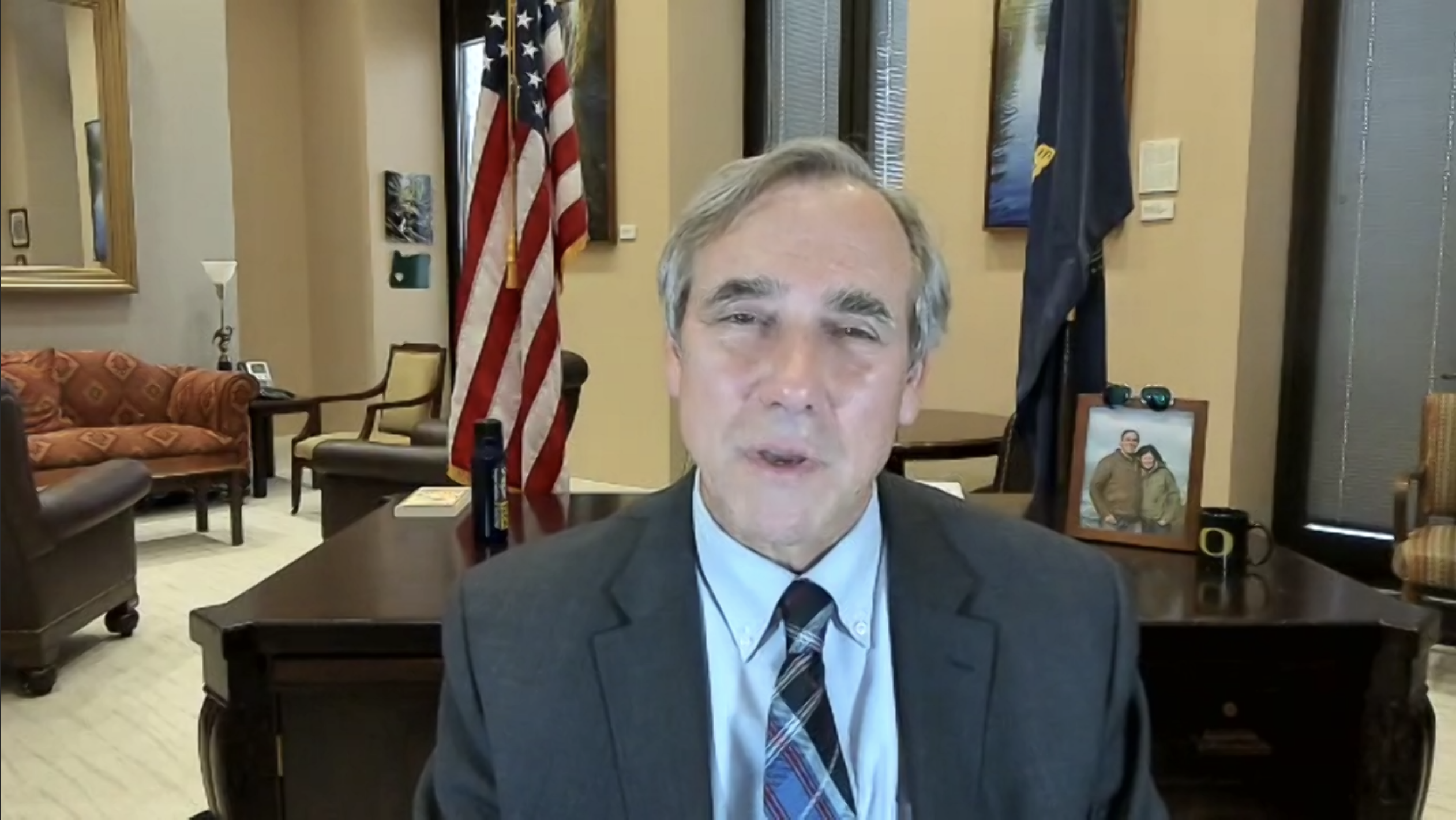Increasing polarization, social media, the corruption of elections and paralysis of the Senate are major threats to American democracy according to Sen. Jeff Merkley (D-Ore.) ’79, who spoke at a Tuesday Democracy Day event hosted by Stanford in Government.
Merkley hails from a small town in rural Oregon, and he said he uses his background to bridge divides between his progressive agenda and the beliefs of his constituents, many of whom are from red counties.
Merkley said that community members in red, rural counties often moderate their opinions about him after hearing from him directly at town halls. However, social media posts and news stations like Fox News that vilify the Democratic party make it more difficult for him to shift people’s preconceived notions, he said.
He also discussed the demonization of Republicans by CNN and MSNBC, adding that he remembers a time “when we didn’t have two absolute media bubbles driving us into our corners and augmenting our anger with each other.”
“We are at this hinge moment,” Merkley said. “The flame of the vision of the government of, by and for the people — that flame is flickering.”
Corruption of elections — especially in the form of ongoing gerrymandering efforts — and deep cynicism induced by the paralysis of the Senate pose a threat to democracy’s integrity, Merkley added. He expressed concerns about the dominance of “dark money” in politics, citing the example that the Republican party and politicians like Lindsey Graham were more willing to speak on climate issues before the rise of the corrupting influence of lobbyists.
Merkley also focused on the potential of international climate agreements, especially as world leaders gather at the 2021 United Nations Climate Change Conference in Glasgow. He said that the Biden administration’s continued endorsement of fossil fuel projects is antithetical to America’s climate change approach.
“We have no moral authority in the world if we aren’t an example of our actions, as well as the speeches,” he said.
Merkley emphasized the necessity of active civic engagement to counter the rising threats to democracy. He offered students advice on engaging with current issues, reflecting on his experiences at Stanford as well as the jobs he had after graduating.
The key to being engaged is being open to shifting plans as opportunities arise, he said. Though he came to Stanford with skills in math and science, Merkley used his time at Stanford to explore classes in philosophy, religious studies, history, economics and political science to help him better understand the world.
In his early career, he had diverse positions including studying poverty issues as a graduate student, working on decreasing the threat of nuclear warfare, serving as the executive director for Portland Habitat for Humanity and leading the fight for LGBTQ+ equality at the beginning of his career as a senator.
“Anything you throw yourself into is better than being on the sidelines,” Merkley said. “So don’t be on the sidelines.”
